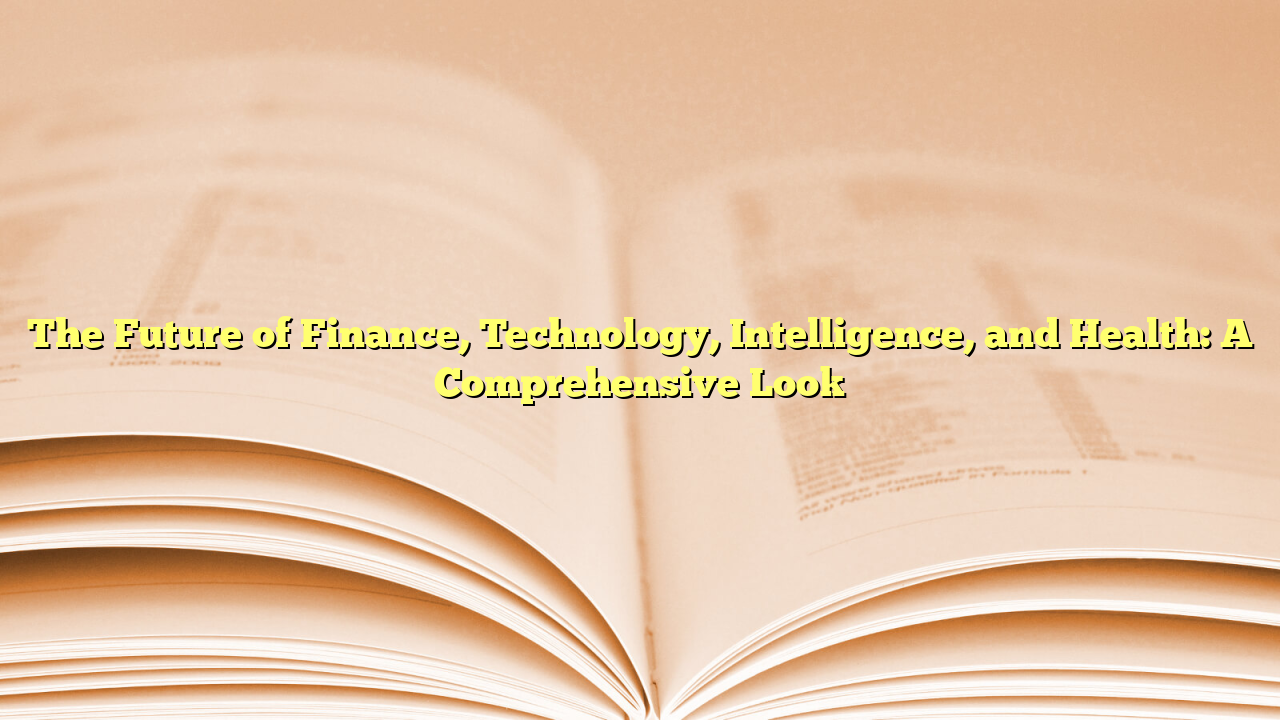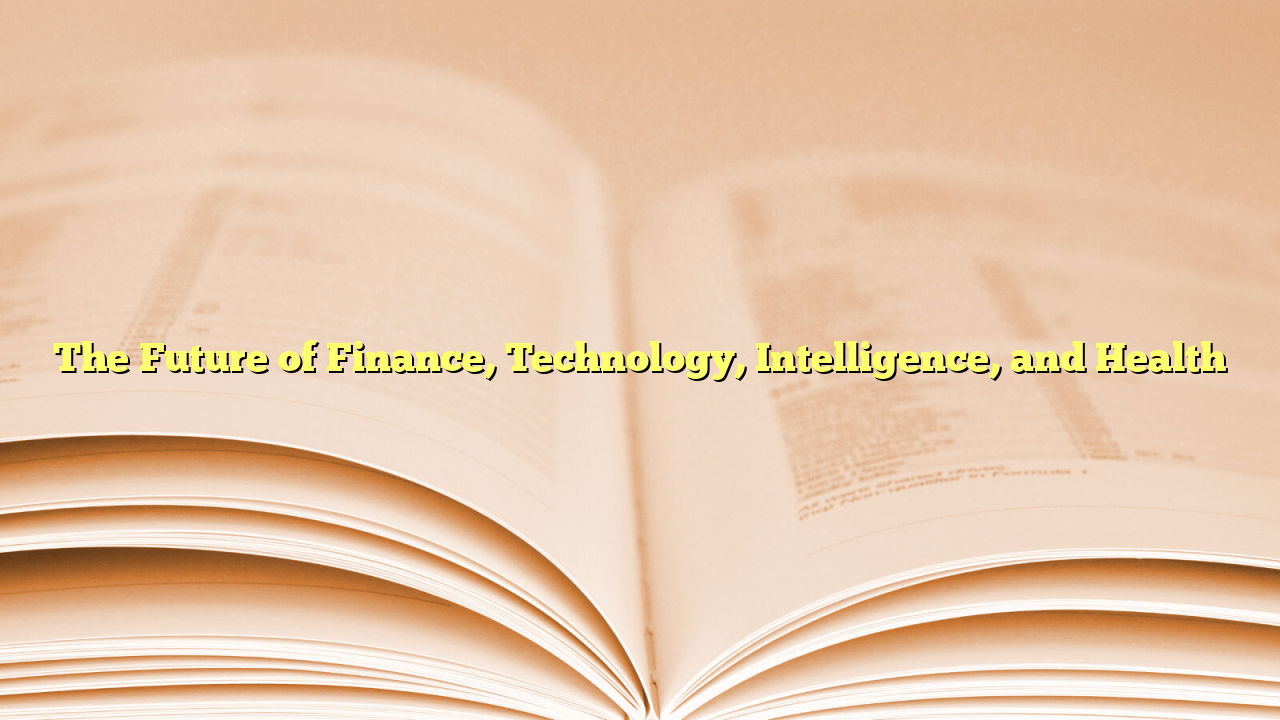Introduction: The intersection of finance, technology, intelligence, and health is becoming more pronounced as these fields continue to develop and influence each other. The synergies between them are expected to have profound effects on the future of economies, societies, and individual lives. This article delves into how these sectors interact and evolve, reshaping the way we understand health, finance, and technology.
Finance and Technology: The financial sector has long been known for its reliance on data and technology, but with the rise of fintech, these elements have reached unprecedented levels of integration. Financial technology companies are leveraging the latest innovations, such as blockchain, artificial intelligence, and big data, to streamline processes and deliver more efficient, transparent, and secure financial services. This technological revolution is not only transforming the way we bank and invest but also enabling new financial products that were previously unimaginable.
The integration of artificial intelligence in finance also presents new possibilities for predictive analytics, risk management, and fraud prevention. By processing vast amounts of data in real-time, AI can identify patterns and anomalies that humans might miss, enabling more informed decision-making. In addition, blockchain is disrupting traditional financial institutions by offering decentralized alternatives that remove the need for intermediaries, reduce costs, and increase transparency.
Intelligence and Technology: Artificial intelligence and machine learning are increasingly becoming vital components of various industries, especially in healthcare. AI is revolutionizing medical practices by providing doctors with powerful tools to enhance diagnosis, predict patient outcomes, and offer personalized treatment strategies based on data-driven insights. These innovations are enhancing healthcare delivery and transforming the patient experience.
In the financial sector, AI-driven technologies are enabling automated trading, asset management, and fraud detection. With the ability to analyze vast amounts of financial data, AI systems can provide insights and predictions that assist in optimizing investment strategies and minimizing risks. These technologies are also improving efficiency in managing investments and identifying potential fraud.
Health and Technology: Technology is revolutionizing the healthcare sector by providing innovative tools for monitoring and managing health. Devices such as wearables and health tracking apps allow individuals to collect real-time data about their physical condition, empowering them to make healthier decisions and seek timely medical attention when needed. Furthermore, telemedicine platforms are offering greater access to healthcare services, especially in remote or underserved areas.
The advent of artificial intelligence in healthcare has also led to breakthroughs in drug discovery, personalized medicine, and patient care. By analyzing patient data, AI-powered systems can identify potential treatments, predict outcomes, and help doctors make more accurate diagnoses. samosir88 of precision has the potential to improve patient outcomes and reduce healthcare costs by enabling more targeted and effective interventions.
Conclusion: As we look toward the future, the integration of finance, intelligence, digital health, and medicine will continue to create new opportunities for innovation and improvement. While challenges remain, particularly around data security, ethical considerations, and regulatory frameworks, the potential for these fields to work together to enhance our quality of life is immense. By embracing these advancements, we can create a more connected, efficient, and healthier world.
The Future of Finance, Technology, Intelligence, and Health: A Comprehensive Look



